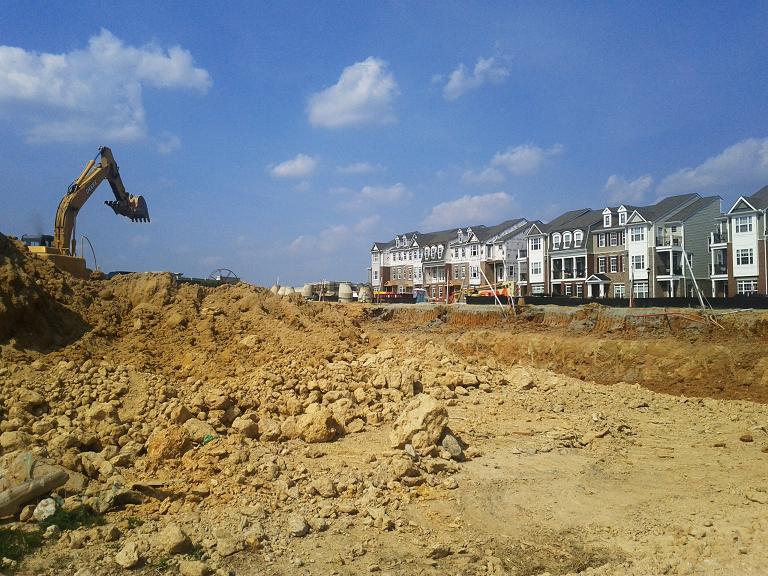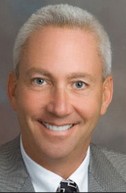A local private equity fund closed itself to investors last week after raising more than $53 million in less than a year.
Markel | Eagle Partners, which mostly invests in distressed real developments, closed its second fund after surpassing its goal of $50 million. The firm raised more money and in less time than it did with Fund I, which capped out at about $31 million.
“Now we can get back to what we’ve always done extremely well, and that is investing in real estate,” said Bryan Kornblau, president of Markel | Eagle Partners and a longtime homebuilder with Eagle Construction. “The fund will fill the void that has been created by the banks’ unwillingness to lend into speculative real estate investment, either residential or commercial.”
Markel | Eagle plans to broaden its reach with Fund II on real estate deals across the Mid-Atlantic. With its initial fund, the company invested almost exclusively in distressed real estate across Richmond and Central Virginia, most notably propping up West Broad Villageafter it was smacked by the downturn.
That experience from the first fund was instructional, Kornblau said.
“Our Fund I was raised in an even harder climate,” he said. “Whenever you have a ‘one’ after your fund, you obviously have no track record. And the positive resolution at West Broad Village is one thing that gave potential investors comfort.”
West Broad Village’s turnaround culminated last month when its initial developer, Florida-based Unicorp, sold its portion of the development in a $161 million deal. Markel | Eagle still controls the massive townhouse portion of West Broad Village, and the company manages the commercial space.
Fund II, which launched last November, will target Mid-Atlantic projects from Georgia to Maryland, Kornblau said.
“We are casting a little bit wider net as far as geography goes,” Kornblau said. “We think that is extremely important for risk mitigation.”
Although it stopped taking new investors just last week, money from the second fund is already flowing into deals.
Markel | Eagle principal Ricky Core said the fund has used about $10 million on five deals including both debt and equity transactions.
For example, Markel | Eagle is investing $5 million to help turn a former manufacturing facility in downturn Leesburg into a residential and retail development.
Other Fund II investments include two projects with Richmond developer Bob Atack: one in Eastern Henrico and one in Eastern Goochland.
The fund is also involved in a waterfront residential development in Delaware. That deal is in conjunction with a Baltimore-based developer.
The more than $53 million in Fund II was raised from repeat investors from the initial fund. Markel | Eagle also had Richmond investment banking firm Davenport & Co. working as its placement agent to find new investors.
Approximately 75 percent of the money for Fund II was raised from individuals and small institutions in the Richmond metro area, Kornblau said. The minimum investment was $100,000.
Kornblau said he couldn’t comment on the potential for a third fund.
The firm’s structure prohibits it from launching another fund until a certain percentage of money from the previous fund has been deployed.
Kornblau said he expects Fund II will be fully invested in the next 18 to 24 months.
A local private equity fund closed itself to investors last week after raising more than $53 million in less than a year.
Markel | Eagle Partners, which mostly invests in distressed real developments, closed its second fund after surpassing its goal of $50 million. The firm raised more money and in less time than it did with Fund I, which capped out at about $31 million.
“Now we can get back to what we’ve always done extremely well, and that is investing in real estate,” said Bryan Kornblau, president of Markel | Eagle Partners and a longtime homebuilder with Eagle Construction. “The fund will fill the void that has been created by the banks’ unwillingness to lend into speculative real estate investment, either residential or commercial.”
Markel | Eagle plans to broaden its reach with Fund II on real estate deals across the Mid-Atlantic. With its initial fund, the company invested almost exclusively in distressed real estate across Richmond and Central Virginia, most notably propping up West Broad Villageafter it was smacked by the downturn.
That experience from the first fund was instructional, Kornblau said.
“Our Fund I was raised in an even harder climate,” he said. “Whenever you have a ‘one’ after your fund, you obviously have no track record. And the positive resolution at West Broad Village is one thing that gave potential investors comfort.”
West Broad Village’s turnaround culminated last month when its initial developer, Florida-based Unicorp, sold its portion of the development in a $161 million deal. Markel | Eagle still controls the massive townhouse portion of West Broad Village, and the company manages the commercial space.
Fund II, which launched last November, will target Mid-Atlantic projects from Georgia to Maryland, Kornblau said.
“We are casting a little bit wider net as far as geography goes,” Kornblau said. “We think that is extremely important for risk mitigation.”
Although it stopped taking new investors just last week, money from the second fund is already flowing into deals.
Markel | Eagle principal Ricky Core said the fund has used about $10 million on five deals including both debt and equity transactions.
For example, Markel | Eagle is investing $5 million to help turn a former manufacturing facility in downturn Leesburg into a residential and retail development.
Other Fund II investments include two projects with Richmond developer Bob Atack: one in Eastern Henrico and one in Eastern Goochland.
The fund is also involved in a waterfront residential development in Delaware. That deal is in conjunction with a Baltimore-based developer.
The more than $53 million in Fund II was raised from repeat investors from the initial fund. Markel | Eagle also had Richmond investment banking firm Davenport & Co. working as its placement agent to find new investors.
Approximately 75 percent of the money for Fund II was raised from individuals and small institutions in the Richmond metro area, Kornblau said. The minimum investment was $100,000.
Kornblau said he couldn’t comment on the potential for a third fund.
The firm’s structure prohibits it from launching another fund until a certain percentage of money from the previous fund has been deployed.
Kornblau said he expects Fund II will be fully invested in the next 18 to 24 months.




